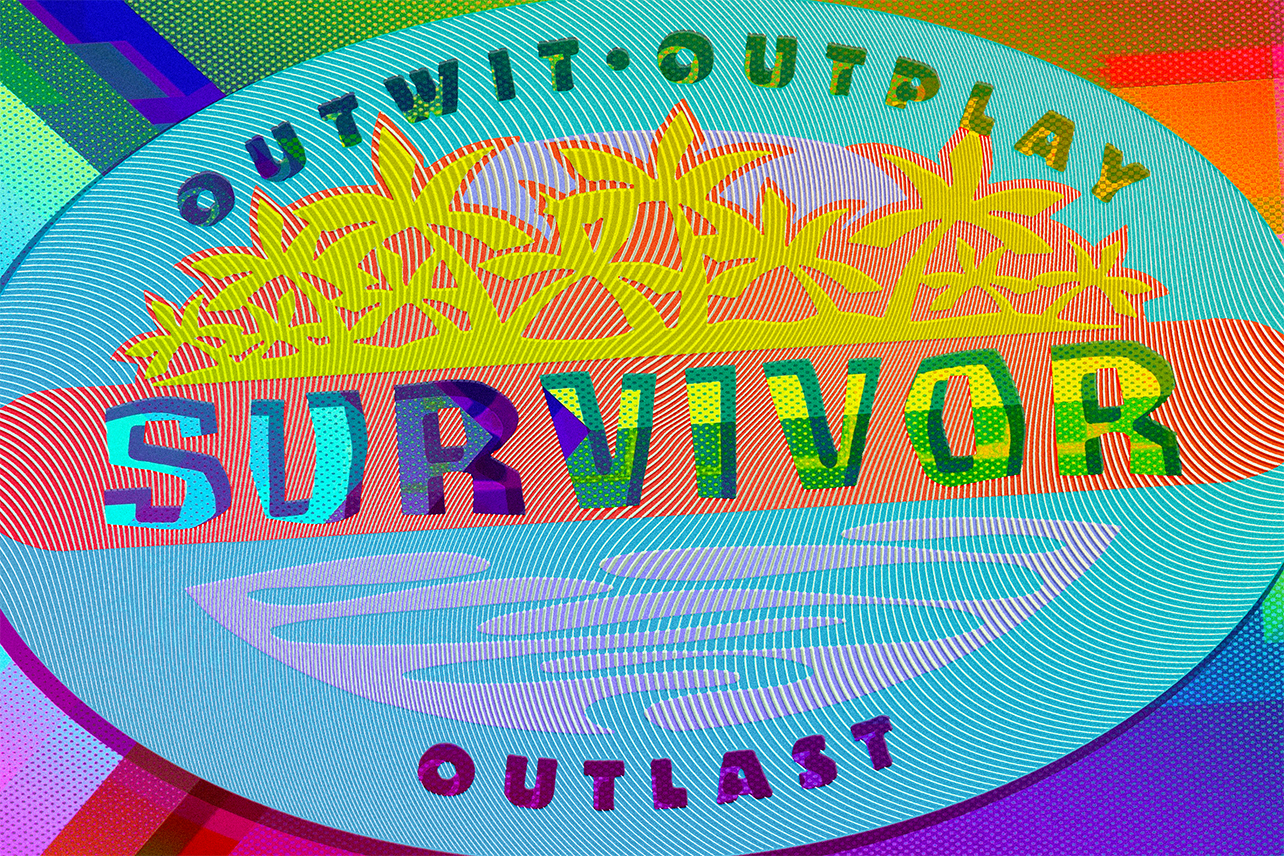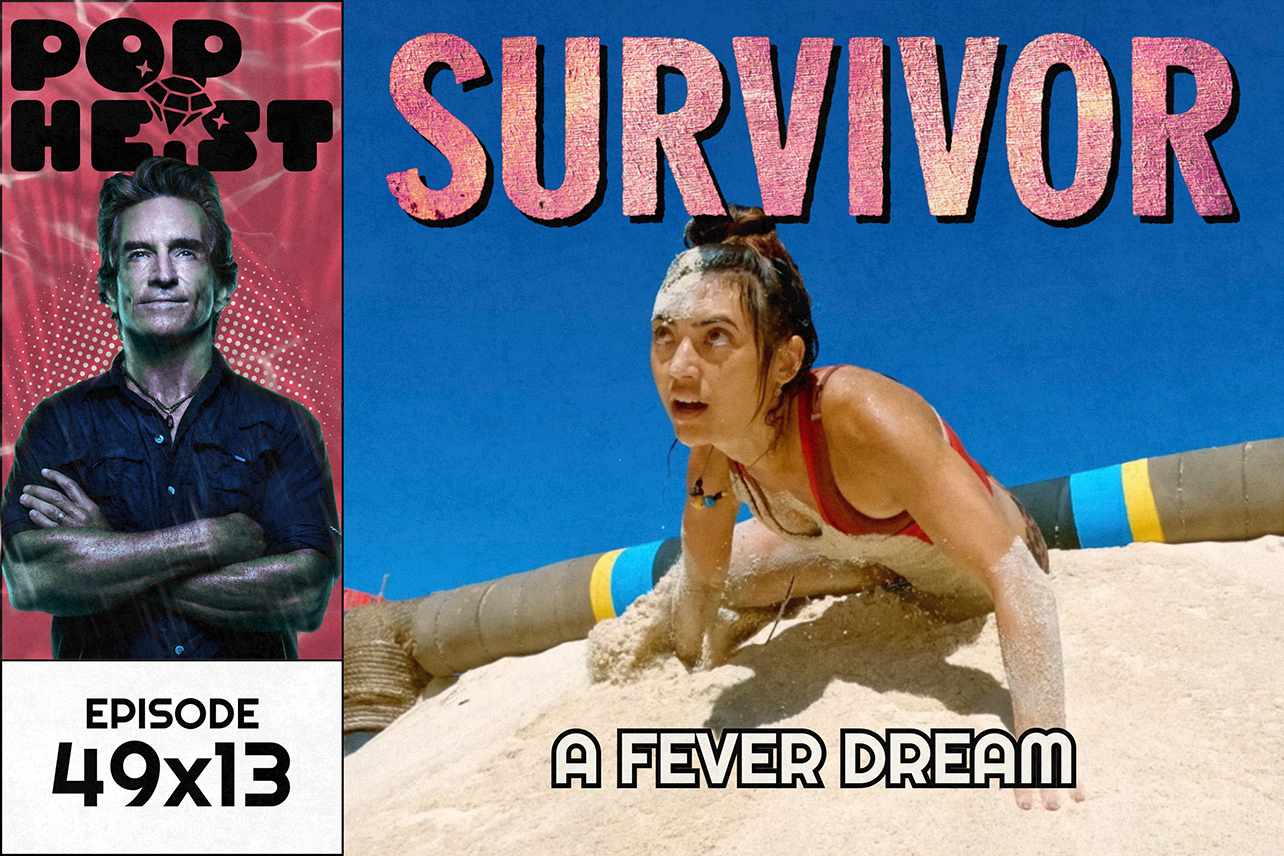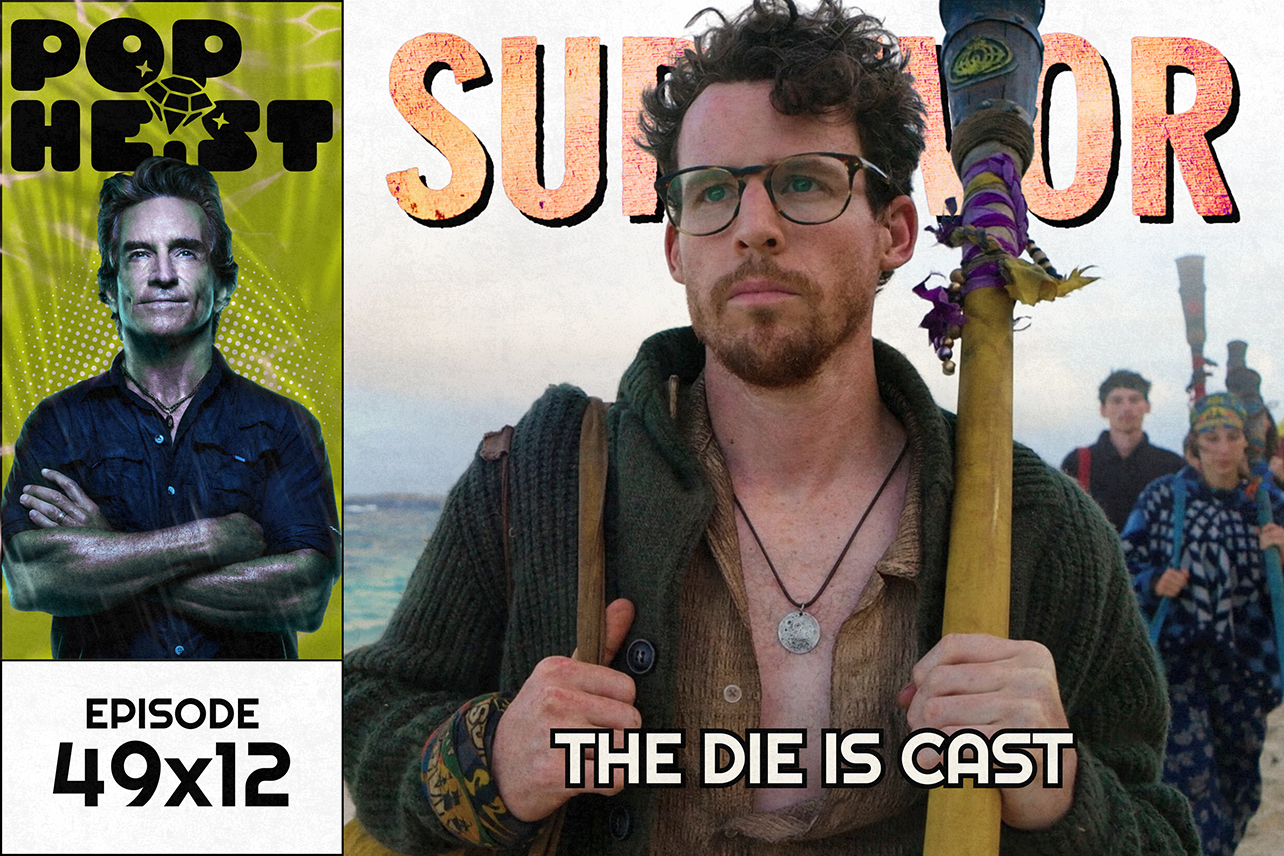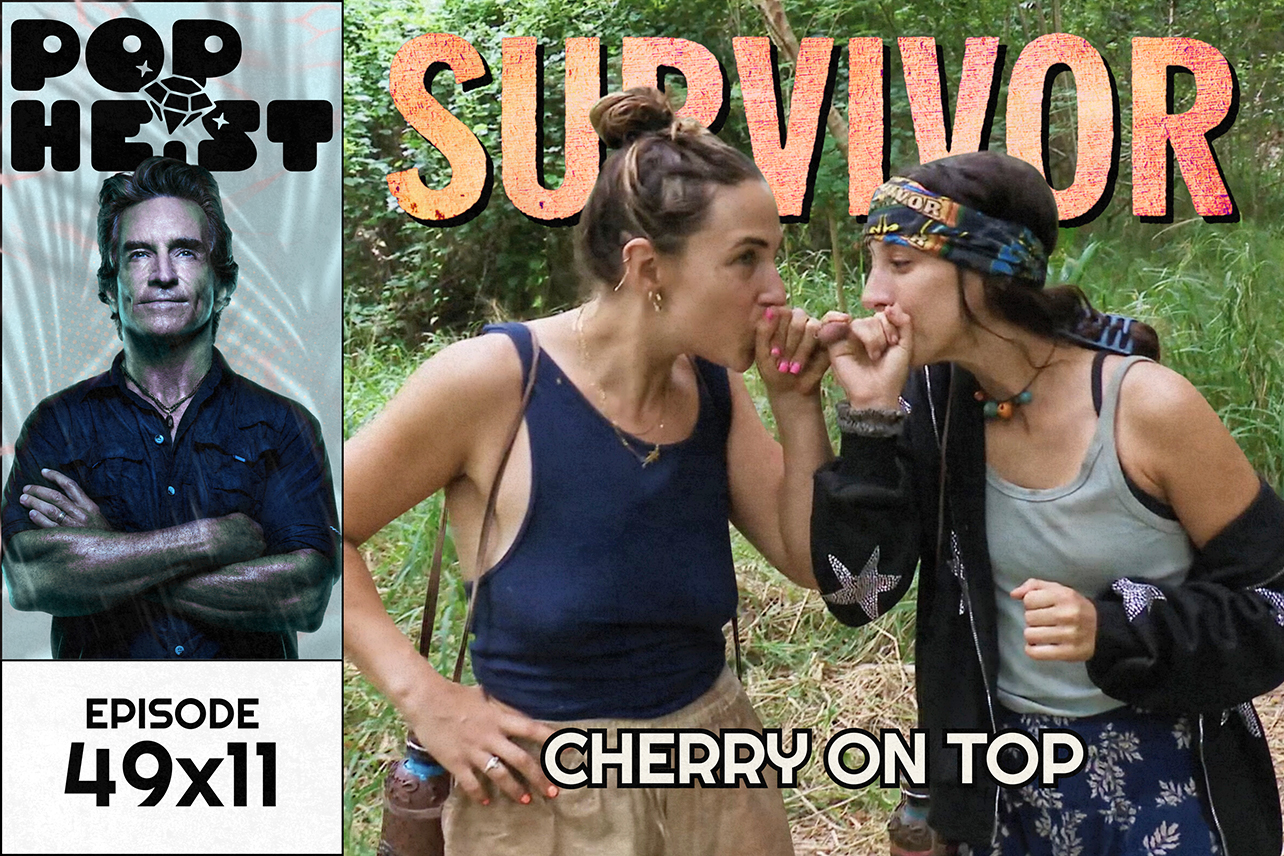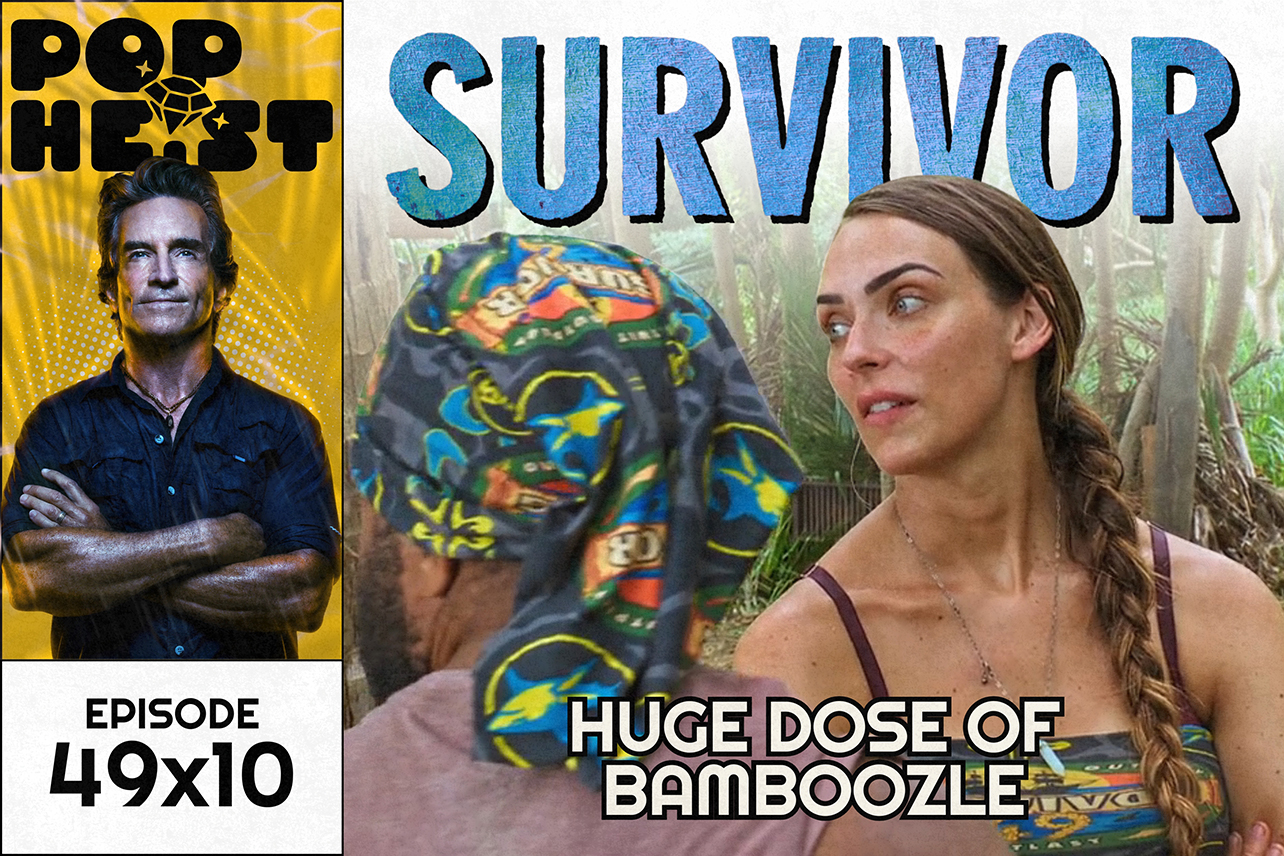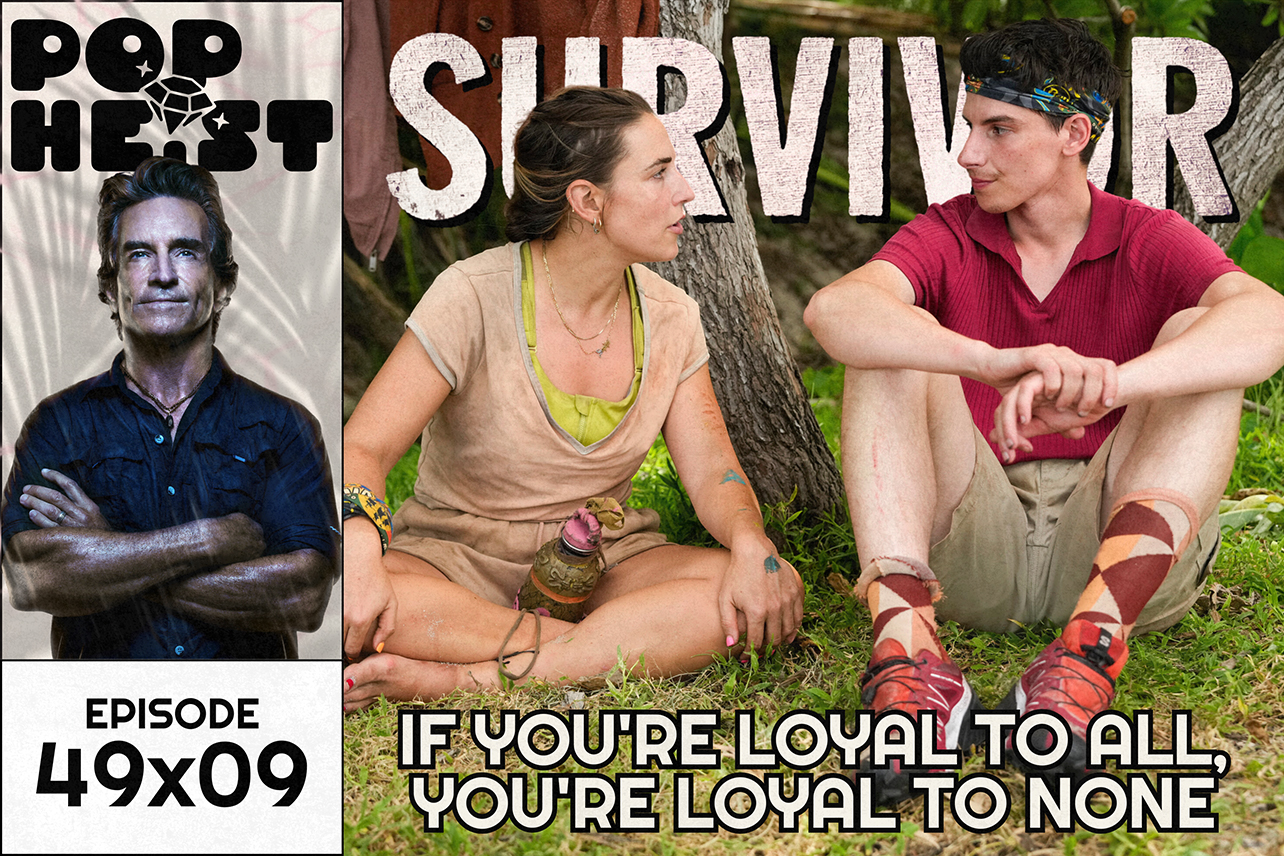Survivor has always been queer. Right from the very beginning.
When the show debuted in the summer of 2000, it was unlike anything television had seen before. It became the most-watched show of the year, a pop culture phenomenon that put everyday people at the center of primetime drama. And at the heart of it all was Richard Hatch. Sitting in a tree, smugly declaring that producers should just write him the check, Hatch wasn't edited as comic relief or a token "gay best friend." He was shown as confident, cunning, and in control and was the first to prove that Survivor wasn't just about surviving the wilderness, but about mastering the social game. And then he won.
For queer people watching, it was a critical moment. Hatch was a gay man leading the show, even if he wasn't beloved. Most importantly, he walked away with the grand prize. He wasn't just a part of the show, he was the big (gay) winner. It was radically different from the way gay men were allowed to be portrayed on TV, which often saw them as caricatures and stereotypes.
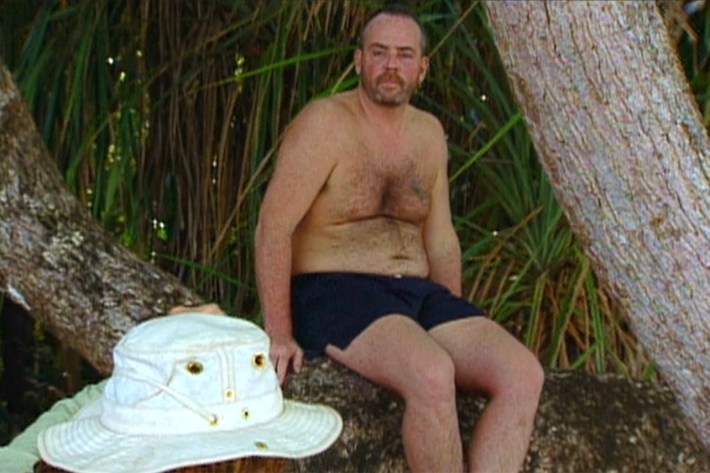
Not only has Survivor made space for queerness, but it has also been a place of worship for many queer people. That representation evolved (and hasn't always been perfect). Still, it has consistently offered LGBTQ+ players the chance to be complex, strategic, vulnerable, and victorious and allowed queer audiences to see themselves reflected.
First, let's dive into the people Survivor showcased. In my opinion, the most important aspect of a show beloved by queer fans is that it features queer people. Obviously, Richard Hatch has been mentioned, but the first person to ever be voted off the show was Sonja Christopher, who was a lesbian. This was never mentioned on the show, allegedly because some people in her community didn't know and might not have been receptive. Still, it's a landmark for the show that the winner and first boot of the season were both members of our community.
John Carroll is another contestant who's worth highlighting. In Survivor: Marquesas, John was positioned as one of the strongest strategic players of the season. He was openly gay, confident, and unapologetic, leading the early alliance until a legendary blindside took him out. His downfall is remembered as one of the first big "power shifts" in Survivor history, but his impact as a visible, savvy gay man in the game made him unforgettable.
It took a long time for the show to have any out lesbians again but in Season 9, Vanuatu, there were two! Scout Cloud Lee and Ami Cusack not only played hard but also helped define the season. Scout, a lesbian activist and rancher, became a tribal elder figure, while Ami, openly bisexual, was a key architect of the women's alliance that controlled the game for much of the pre-merge. Both were the first to have a Loved Ones visit with their queer partner (though Ami has talked about how the show teased a kiss between her and her girlfriend, only to not show it on the episode).

Seeing these players on Survivor mattered, not just for the game, but for the culture around it. In the early 2000s, queer representation on television was still rare, often reduced to stereotypes, punchlines, or background characters. On Survivor, queer contestants were central to the story. They were leaders, strategists, winners, and, unfortunately, sometimes first boots.
For LGBTQ+ viewers, that visibility was powerful. It said: We exist here, too. On the biggest show in the country, our community wasn't hidden or erased. We were part of the narrative, shaping it from the very beginning. And in a media landscape that so often denies or distorts queer lives, simply being visible was groundbreaking.
But just being on the show isn't enough. It's my opinion that the reason LGBTQ+ people love Survivor so much is that they see themselves in the game. At its core, the show is about social connections, perception and adapting. Who do you trust? Who do you have to lie to? When do you hide, and when do you take up space?
These are questions that queer people ask themselves all the time! We quickly learn how to read a room. Is it safe to be out? Can I be my authentic self here? Do I have to lie to anybody to protect my safety? To navigate these situations and protect ourselves, we develop a skillset. These instincts are sharpened by necessity but map well onto a game like Survivor.
It's why I think queer players thrive on the show. The very qualities that guard and protect us are what allow us to navigate a complex social game. In my opinion, Survivor is a microcosm of society. In the New Era of Survivor, three of the eight winners (so far) are LGBTQ+ (Erika, Yam Yam and Kenzie)! But that's not to mention the countless number of individuals who I would consider to be elite players: Evvie, Ricard, Mike White, Carolyn, Zeke, Hai… the list goes on and on.
Seeing queer players succeed on Survivor reinforces something powerful: the very skills we've had to cultivate to survive in the real world aren't just coping mechanisms. They're strengths that can win a million-dollar game.

The last reason I think Survivor is so beloved by fans is that it's camp. Sure, at its core, the show is serious. It's people battling hunger, storms, and betrayals for a million dollars, but it's also ridiculous. The torches, the dramatic music, the endless metaphors spat out by contestants to Jeff Probst at Tribal Council. It's deadly earnest and wildly theatrical at the same time, which is precisely what makes it camp. And queer audiences know how to read camp. We know how to find joy in the excess, the drama, the performance of it all. Survivor takes itself so seriously that it becomes playful, and in that space, it becomes ours.
Survivor has endured for nearly 25 years not just because it's a great game (which it is), but because it reflects something more profound about human connection. For queer audiences, it resonates on a unique frequency. It shows that the outsider can win, that vulnerability can be a weapon and that authenticity can be a strategy. When players like Yam Yam or Kenzie or Todd walk into Final Tribal fully themselves and leave with the title of Sole Survivor, it isn't just a victory for them, it's a victory for every queer person who's doubtful they could be themselves.
That's why Survivor feels so queer. It's not only about the representation on screen, but about how the game itself mirrors queer survival: reading rooms, adapting identities, building chosen families, and finding ways to endure in hostile environments. For LGBTQ+ fans, it isn't just television. It's recognition, validation, and hope. And maybe that's the real secret of Survivor: being different doesn't make you weaker. Sometimes, it's exactly what makes you the winner.
